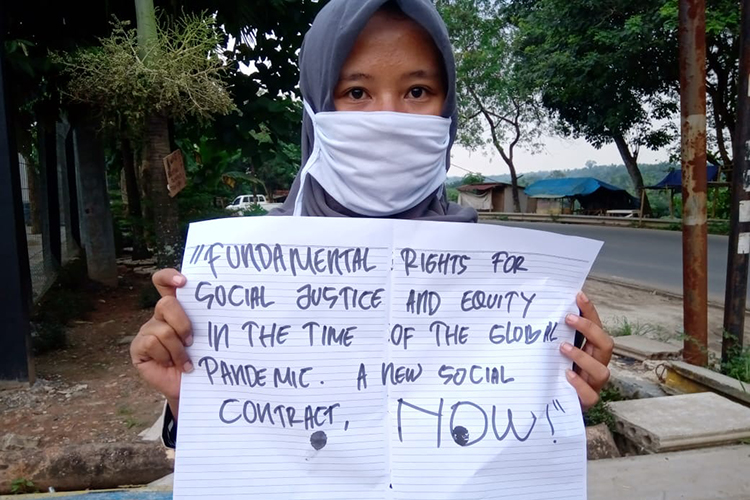Although the DAC’s final Communiqué notes the efforts made by DAC members in responding to the COVID-19 crisis and underlines important areas of work in the current context, unions regret that it still misses clear commitments on increasing aid budgets and reinforcing crucial areas to build recovery and resilience from the crisis, such as social protection and decent work creation.
During the presentation of the report "Global Outlook on Financing for Sustainable Development 2021" and the subsequent discussion on Financing for Sustainable Development in the age of COVID-19, DAC members put a strong emphasis on the need to leverage private sector funds. To this, trade unions responded by stressing that “new sources of finance mobilised through Official Development Assistance (ODA), such as blending, should be centred on quality employment creation and should be conditioned to the application of ILO standards, the OECD Guidelines for Multinational Enterprises, and due diligence.”
“Countries with solid collective bargaining are the ones better coping with the crisis thanks to sustainable and inclusive responses crafted by social partners. DAC members should work closely with social partners in the design and implementation of targeted interventions that will deliver the right measures to support developing countries in their path towards recovery,” said Paola Simonetti, Deputy Director of Economic and Social policy department at the ITUC.
Trade unions supported the references to debt relief and to the role of taxation that several DAC members made.
DAC members emphasised the need for a green recovery, scaling up climate finance, and the importance of better screening actions for climate impact. The role of technology, innovation and digitalisation in the recovery were also amply mentioned. Simonetti stressed that “industrial transformation cannot be achieved without workers and this can only be guaranteed by a Just Transition”.
Social protection is crucial and so is the need for a more coordinated response by governments and development actors. “A Global Fund for Social Protection would help the countries most in need to sustain and expand protection in times of crises and to build resilience,” stressed Simonetti, and insisted on the need for investments in care.
Finally, trade unions supported the DAC’s approach to 1) revitalise the development effectiveness agenda, including in particular the alignment to country systems and the predictability of aid to move forward towards untying all aid and to 2) support the work with civil society organisations.
For more information


